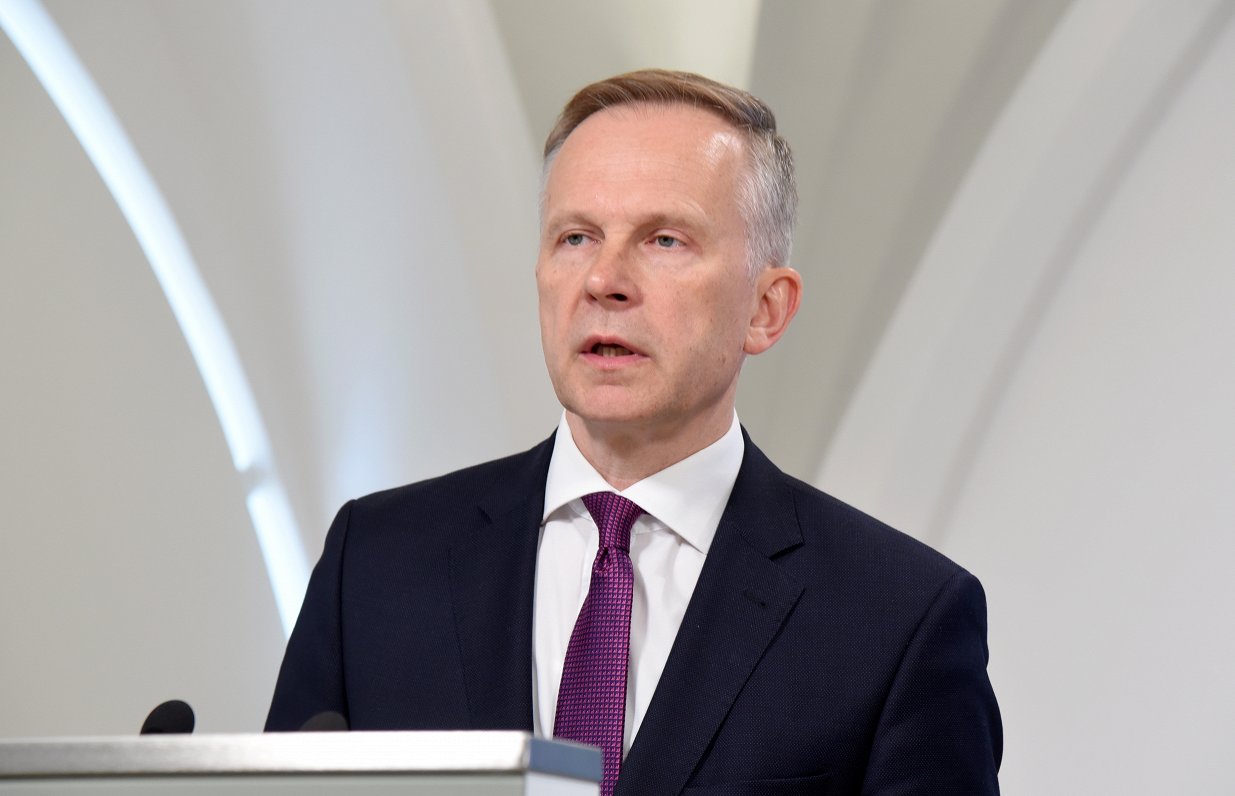He rattled through a few tweaks to the bank's economic forecasts, reducing the economic growth prognosis for 2019 from 2.5% to 2.3%. Next year, growth of 2.6% is forecast.
Similarly the inflation forecasts for both 2019 and 2020 were scaled back slightly to 2.8% this year and 2.4% next year.
"Concerning the further development of the Latvian economy, uncertainties remain - mainly regarding what is happening in foreign markets. Growth is expected to remain moderate and there is little hope of returning to the pace of previous years," Rimšēvičs said.
I. Rimšēvičs: Decembrī esam koriģējuši IKP pieauguma prognozi 2019. gadam (no 2.5% uz 2.3%), savukārt attiecībā uz 2020. gadu saglabājam 2.6% IKP pieauguma prognozi. pic.twitter.com/ix5CfmDtWq
— Latvijas Banka (@LatvijasBanka) December 16, 2019
Having dealt with the macroeconomic data, the governor then moved on to a review of his 27 years at the central bank, giving himself a more upbeat assessment.
Under him, the central bank "had not been passive but very active" Rimšēvičs told reporters, lauding various recommendations it had made to government on subjects such as education and tax reform.
"Unfortunately many of our suggestions were not put into practice," he lamented before listing various other achivements such as the introduction of the euro, the construction of a cash handling center used by Lithuania and Estonia too, plus the introduction of a quick payment regime.
Asked if the bribery charges against him - which he denies - meant he left the central bank with a damaged reputation, Rimšēvičs drew a distinction between the institution and his own personal circumstances.
"Everything is absolutely fine as regards the reputation of the Latvian bank," said Rimšēvičs.
"As regards my future plans, my main priority is to fight against the lies that have been told... and to defend my reputation," said Rimšēvičs.
In a Latvian Radio report December 16, investment banker Ģirts Rungainis said Rimšēvičs "probably will go down in history as a controversial figure", but that he had indeed been part of some positive developments, particularly overseeing both the stabilization of the lats currency and its smooth replacement by the euro.
As previously reported by LSM, economist Mārtiņš Kāzaks will take over the governorship from December 21.





























